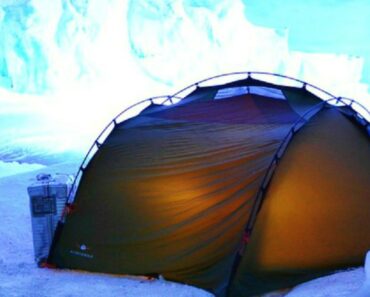Preparing for a bug out is a major part of being a prepper. Regardless of what your survival plans are, you’ve got to have a plan for getting out of Dodge, if Dodge becomes untenable. I don’t care how well you are prepared to bug in and protect your home from all enemies, there are some enemies you can’t protect yourself from. Just ask the people of Paradise, California how well bugging in would have worked for them, when their town burned to the ground.
There is a genuine fascination with bugging out in the prepping community. I get it, building the ultimate bug out vehicle is much more interesting than stockpiling powdered milk, mac & cheese and canned meat. I enjoy looking at the pictures people post of their idea of an ultimate bug out vehicle, just as much as anyone and wouldn’t mind owning a few of them. But my desire is tempered with reality too.
From where I sit, I see too many people looking at bugging out wistfully, as a way to escape their homes and lives. Rather than being an ultimate plan, when all else fails, it looks like they’re just waiting for the opportunity to bug out and live in the wild.
Hey, I get it; if I had my druthers, I’d be living in a cabin in the woods somewhere. A few years back, I thought I was going to have that opportunity, but it didn’t pan out. So, now I’m living in a small town, which is a whole lot better than living in the city.
Here’s the thing though… bugging out permanently to the woods somewhere, with the idea of never coming home, doesn’t offer much of a life to our kids. Oh, they get to enjoy the great outdoors and breathe all that fresh air; but they would also lose out on getting a good education and the opportunities that offers. Worse than that, where are they going to find someone to marry, if you’re hiding out in the woods, like a hermit?
This isn’t to say that having that survival retreat in the woods is a bad idea. I’d love to have one if I could afford it. It would be a great place to get away to on the weekends. If I had such a place, you can be sure that it would be set up as a survival retreat. But… and this is a pretty big but… I wouldn’t plan on staying there any longer than possible. I’d get out of town for as long as I needed to; but always with the idea of going back home to rebuild my community as soon as practical.
Here’s the thing; while bugging out and living out the rest of your life in the woods makes for great fiction; it’s not good for society as a whole. Many post-apocalyptic movies show small bands of people living in a primitive way, often underground. But other than being a team that is trying to survive together, there really isn’t much in the way of society. Those people’s children are extremely limited as to their choices for a spouse to marry, as well as what they can do with their lives.
I don’t know about you, but I’d rather leave my children more of a legacy than just to say that they were able to survive. Even if we are unable to maintain society as it is (and I’m not sure we should), I don’t want to see my children or grandchildren having to go back to a primitive lifestyle, where they are barely able to gather enough food to sustain life, let alone have any of our modern conveniences.
So, What’s the Answer?
First, as preppers, we are in the best position of anyone to ensure some sort of continuation of society, in whatever form that might take. While there are many things in modern society which I’m not in agreement with; there are also some I am glad we have. Giving up modern medicine, in order to get rid of some of our social ills, seems like a heavy price to inflict upon our descendants.
If you’ve never read William Forstchen’s book “One Second After” and the two sequels, you should. He doesn’t just focus on surviving the EMP in those books, not even the first one. Rather, he focuses on the community surviving and rebuilding what they’ve lost. This is especially apparent in the second and third books, where the people of the town are working on rediscovering technology and figuring out how to make things for themselves. While they didn’t reach the level of our current technology in the series, they were heading in the right direction.
If there is anyone who is poised to take over that job and restore society, it is us in the prepper movement. Many of us are learning skills that go far beyond our basic survival skills; trades which no longer exist. It is that knowledge which will allow us to rebuild technology in the aftermath of a disaster. While we may not reach the level that exists today, we will be able to restore much that is lost.
Perhaps even more importantly than that, our survival skills will put us in the position of being highly valuable people to our community. People may very well look up to us for leadership. If they don’t those who do assume leadership positions will recognize our value, assuming they aren’t just political hacks. Even without being the de facto leaders, our knowledge may make us de jure leaders of the community, as people look up to us to get the necessary things done.
Looking down the road, if there is ever a TEOTWAWKI event and we allow the politicians and the keyboard warriors to take over again, trying to oppress us with their political correctness and requirements that we honor socially destructive behavior, it will be our fault. We would hold all the cards in such a scenario and we would either have to use them, or end up with our children living in a world that’s worse than the one we have now.
A Reasonable Bug Out
So, my bug out plan is strictly a temporary one. If I need to bug out in order to survive, I will. I have no problem with that. But I have no intention of abandoning my home and what I’ve built permanently, unless it burns to the ground. My bug out will be a bug out, not an INCH.
With that in mind, my destination is a small rural town I know, where my wife and I have established relationships. Our supply cache is there, allowing us to have a supply of food, clothing, water and survival gear, so as to not be a burden on the community. We have several spots scouted out to stay, none of which we own. Those range from abandoned buildings in town, to campsites we can use, and even a motel where we are known, because we’ve stayed there several times.
How long we stay bugged out will depend largely on the conditions here at home. Obviously, if the town burns down, we won’t be coming back quickly. But assuming it doesn’t, I don’t want to be gone any longer than necessary. In other words, I don’t want to abandon my home to the two-legged wolves.
Hopefully we will be able to buy some land soon and park a travel trailer there, as an alternate bug out location and weekend retreat. But until we do, that town is our primary destination for a bug out.
Prepare for the Aftermath
My real preparation is for the aftermath, more than for the bugout. Since I expect to come back home, I’m also planning on being a major part of my community’s rebuilding efforts. While I don’t expect to take over the leadership of the town, I do expect that the things which I will do will cause those leaders to seek me out.
There are two parts of my post-disaster rebuild plan; both of which I am working on preparing for. The first deals with my neighborhood. I expect that I will have hungry neighbors, just like everyone else. Rather than allowing them to become enemies, I intend to help them get established, starting their own gardens, so that they will have food to eat. In the meantime, I have some simple food set aside for the purpose of helping them to survive. They won’t be eating as good as we will; but then again, they’re not paying for it.
The second part of my post-disaster plan deals with helping the community through using my knowledge of technology to see how much I can get working. I’m assuming that I’m not the only guy around with useful skills; although the skills I have may be unique in this small town. My intent is to gather those skilled people together to work for our community’s betterment.
As part of that, I’ve built an extensive workshop. While I have no intention of giving that workshop to the town; it will give me a place to work on power projects and developing other things to help us become self-sufficient. I envision our town being able to go back to the way things were in the 1800s, where almost all of what we use is locally produced and fabricated. The things left behind, which would normally be scrap, will provide us material to work with, making the tools which will allow us to thrive as a community once again.




























